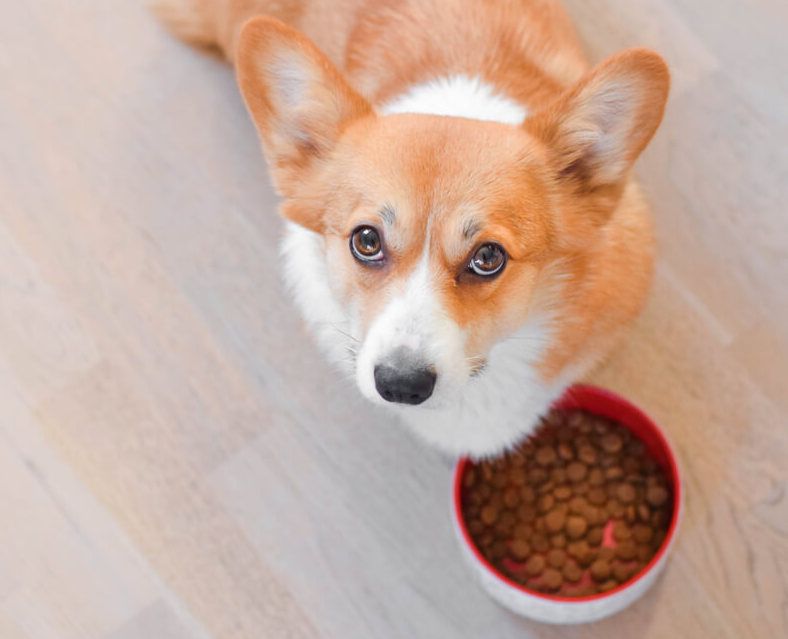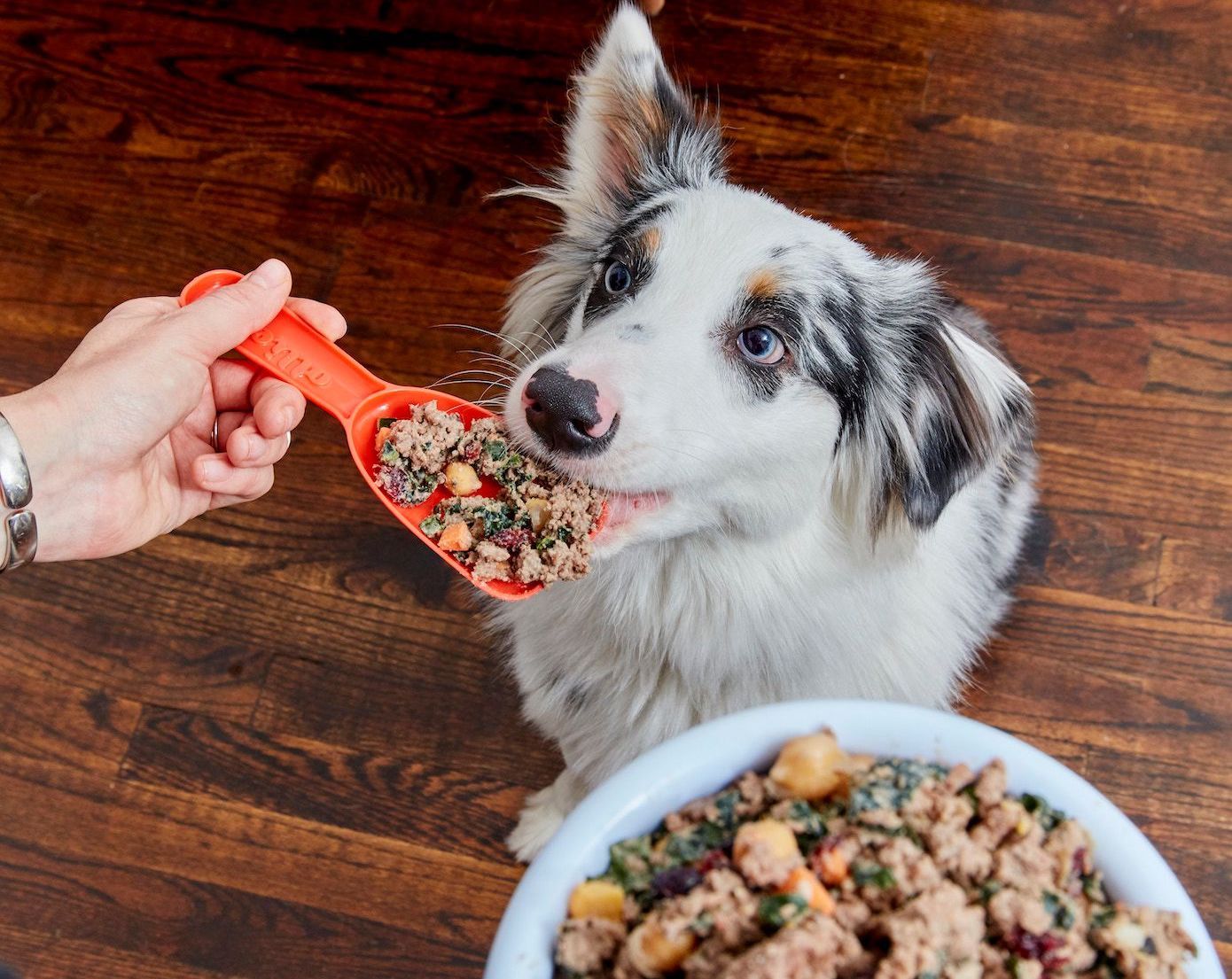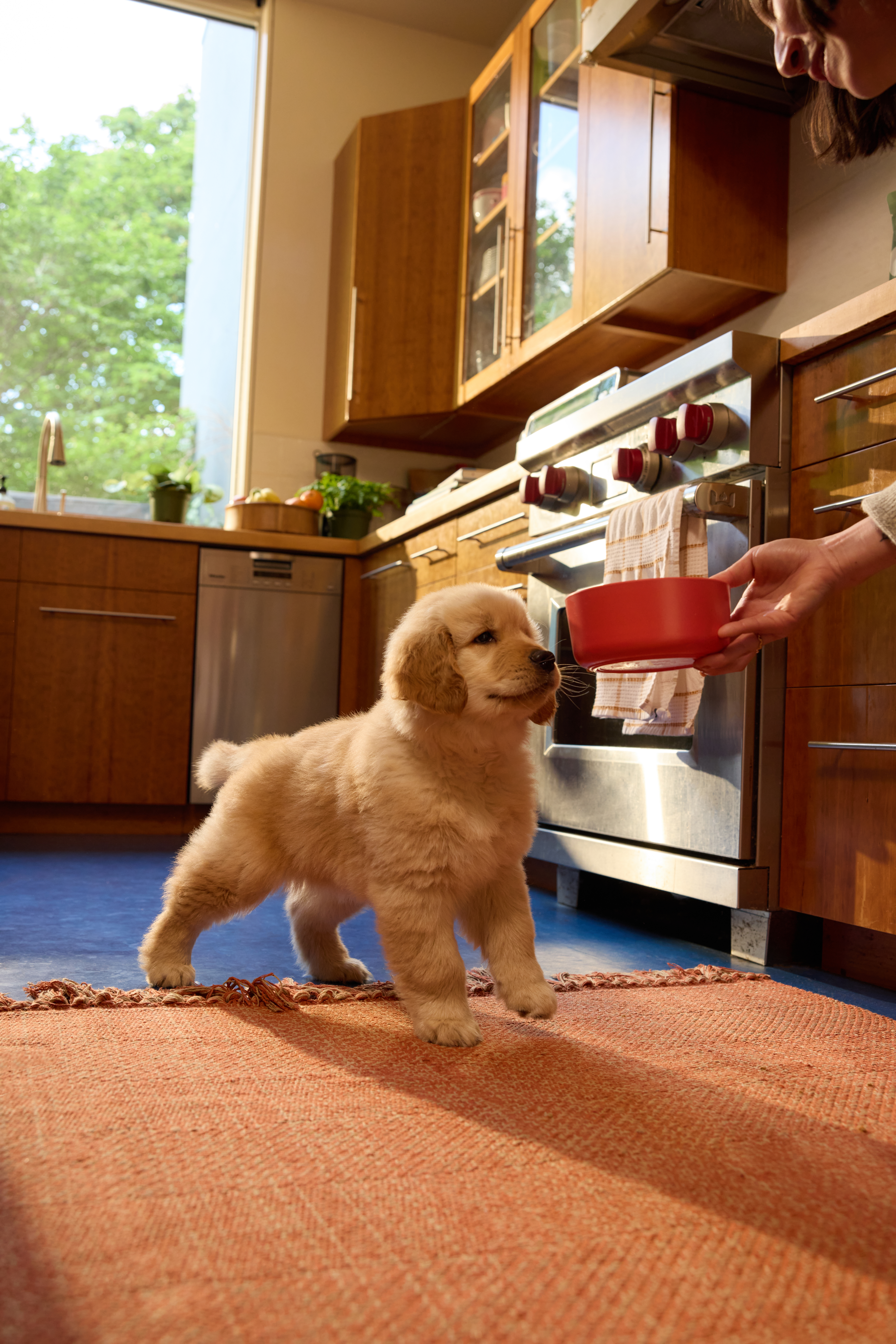Hey Ollie blog readers! We’re offering you an exclusive 60% OFF your starter box! Try now!
As a pet parent, you probably worry a lot about your pup. When it comes to food and nutrition, you probably worry most about whether or not you are feeding your dog enough and if your pup is at a healthy weight.
Have you ever wondered if your pup actually enjoys what they eat? We asked experts how to tell if your pup is enjoying their meals. We also provide a few suggestions to keep things interesting and delicious!
How can I tell if my pup likes what they eat?
“Most dogs like a variety of flavors and readily accept new foods, but some dogs do seem to have preferences. What a puppy is exposed to early on in life may play a role in what he will like later.” Says Dr. Jennifer Coates.
It is important to remember that dogs have one-sixth as many taste buds as humans do, but they have much more powerful senses of smell. This means that the smell of their food might be more important than the actual taste when your pup is deciding if they like something or not.
If you have ever attended a puppy kindergarten class, the teacher may have suggested you bring high value treats with you for the lesson. The suggested high-value treats are usually soft and smelly like hotdogs, cheese, lunch meat, or training treats made of various proteins like chicken, salmon or peanut butter. The theory is that the more your pup wants what you have, the more they will focus on learning what you’re asking in order to get the treat.
Since you can’t feed your pup high-value treats in place of meals, you want to figure out what kind of foods your pup likes. Some might prefer fish or chicken-based meals and others crave beef! But how do you know? You can allow your pup to try a few foods and pay attention to their level of excitement about eating. Some pups are picky and others will eat just about anything so it might be hard to know exactly what your dog’s favorite flavor is.
Look at your pup’s body language for cues
Since your dog can’t tell you exactly what they like, you can look at their body language for some solid cues. If your pup runs to their dish, takes a sniff of their food and begins eating right away, chances are they like it! If your pup takes a sniff and turns away, that is probably a good sign that they aren’t particularly interested in that dish.
When eating pay attention to how your pup eats. If they eat quickly, it usually means they think their food is delicious. Pups who raise their head regularly may not be enjoying what your are feeding. If your pup keeps their head in the bowl for the duration of their meal and finishes all of the food you’ve offered that is another good sign that they enjoyed their meal.
You can also watch your pup after eating. Lip licking, not fidgeting and falling asleep are also signs of a meal that was much enjoyed.

Why does my dog refuse certain dog foods?
If your dog is turning up their nose at their dog food. You might need to do a little investigating to figure out why.
First, are you feeding your pup anything else, like table scraps for example? “If you asked your child would she rather eat spinach or a Twinkie, the answer is obvious,” says Louise Murray, DVM, a diplomate ACVIM and director of medicine for ASPCA’s Bergh Memorial Animal Hospital in New York City. “If you’re going to sometimes give your dog bacon for breakfast or steak from your plate, why would you blame him if he shies away from dry dog food?”
Since you can’t negotiate with your pup — “eat your kibble and you can have a bite of steak,” you may need to stop feeding table scraps at least for a little bit so that your pup goes back to eating what they’re supposed to. Too many table scraps can lead to nutritional imbalances, weight gain or other medical conditions like pancreatitis or diabetes.
If your pup is simply picky, but is energetic and maintains a healthy weight there might not be any cause for concern. However, if your pup has been a voracious or consistent eater and suddenly stops eating or refuses food there could be another issue. Either there is something wrong medically with your pup or an issue with the food.
The only way to get to the root cause of the issue is to see the vet. If your puppy has been refusing food for 24 hours, or your adult dog hasn’t eaten in about 48 hours – get to the vet immediately.
If your pup is healthy, there could be an issue with the food. In 2007, many pups were sickened when dog food containing melamine was sold. Some of the pups would refuse to eat it and the owners had no idea why until their pups were sickened, which in some cases was fatal. Owners were devastated that they unknowingly made their pups sick. To prevent this from happening in your home, be sure to keep up to date with the latest recall news.
At Ollie, we take food safety and food flavor very seriously! To ensure that your pups like the taste of our food we worked with a veterinary nutritionist to develop recipes that even the pickiest of eaters will love. We use human-grade ingredients and gently cook our food in a USDA certified kitchen to keep it full of nutrients and make it easy for your pup to digest.
To keep your pup safe, once the food leaves our kitchen, we ship our food to your door frozen in small batches. These packs are sealed both for freshness and safety. Our food will last months in the freezer and up to two weeks in the fridge unopened. Once you open a pack your pup should finish it in four days to maintain optimal freshness.
Should I always feed my dog the same food?
You don’t have to! In order to keep your pup interested and offer nutritional diversity, you can rotate your pup’s food. Feeding the dog the same thing every day is the same as you eating the same thing every single day. While you can create a nutritious and very well balanced menu that gives you everything you need, it does get boring. Adding some variety can be accomplished using treats, supplementing home-cooked food like small pieces of chicken, turkey, beef or fish as well as fresh fruit and veggies or rotating foods to allow for more variety in your pet’s diet.
At Ollie, we allow customers to choose up to two recipes per shipment to allow for some variety in your pet’s diet.
When introducing a new food, you want to do so slowly. Transitioning too quickly can lead to an upset stomach, vomiting, or diarrhea – exactly what you want to avoid!
The Ollie blog is devoted to helping pet parents lead healthier lives with their pups. If you want to learn more about our fresh, human-grade food, check out MyOllie.com.
Tagged As:

The nutrition your dog needs,
the food they want.

Enjoying our articles? Subscribe our Newsletters and get new articles directly to your inbox
You might also like
17 October 2025
6 MINS READ
Choosing the Best Food to Fuel Your Puppy’s Strong Future
As a new pup parent, you have the responsibility of laying the foundation for your puppy’s future health. The nutritional choices you make during their first year are crucial, directly influenci…
by Ollie Pets
17 October 2025
3 MINS READ
Gentle Human-Grade Solutions for Sensitive Stomachs
Watching your dog suffer from a sensitive stomach is always stressful, and the constant worry about gas, loose stools, or vomiting can be overwhelming. Fortunately, a high-quality, easily digestib…
by Ollie Pets
17 October 2025
5 MINS READ
Choose Fresh: The Best Dog Food for Allergy Relief
As a pup parent, there’s nothing worse than seeing your dog in distress. The constant scratching, irritated skin, or upset stomach that comes with allergies can be heartbreaking. The good news is …
by Ollie Pets







